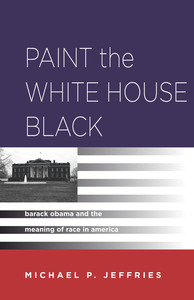
2015
224 pp.
from $24.95
Cloth ISBN: 9780804789424
Paper ISBN: 9780804792752
Digital ISBN: 9780804793483
(20% off e-book after you add to Shopping Cart.
Rental options also available.)
Well before Rev. Dr. Martin Luther King, Jr. spoke out against nuclear weapons, African Americans were protesting the Bomb. Historians have generally ignored African Americans when studying the anti-nuclear movement, yet they were some of the first citizens to protest Truman's decision to drop atomic bombs in Hiroshima and Nagasaki in 1945. Now for the first time, African Americans Against the Bomb tells the compelling story of those black activists who fought for nuclear disarmament by connecting the nuclear issue with the fight for racial equality.
Intondi shows that from early on, blacks in America saw the use of atomic bombs as a racial issue, asking why such enormous resources were being spent building nuclear arms instead of being used to improve impoverished communities. Black activists' fears that race played a role in the decision to deploy atomic bombs only increased when the U.S. threatened to use nuclear weapons in Korea in the 1950s and Vietnam a decade later. For black leftists in Popular Front groups, the nuclear issue was connected to colonialism: the U.S. obtained uranium from the Belgian controlled Congo and the French tested their nuclear weapons in the Sahara.
By expanding traditional research in the history of the nuclear disarmament movement to look at black liberals, clergy, artists, musicians, and civil rights leaders, Intondi reveals the links between the black freedom movement in America and issues of global peace. From Langston Hughes through Lorraine Hansberry to President Obama, African Americans Against the Bomb offers an eye-opening account of the continuous involvement of African Americans who recognized that the rise of nuclear weapons was a threat to the civil rights of all people.
About the author
Vincent J. Intondi is Associate Professor of African American History at Montgomery College and Director of Research at the Nuclear Studies Institute of the American University in Washington, D.C.
"Intondi has produced a well-researched, succinct account of African American involvement in the crusade to contain the threat of atomic warefare . . . Highly recommended"
—J.H. Smith, CHOICE
"The African American contribution to nuclear discourse should be deemed an essential part of the conversation on the fraught history of American nuclear development. Intondi's well-written, well-researched book makes certain these efforts will be known."
—Gerald Horne, John and Rebecca Moores Professor of History, University of Houston
"The Civil Rights Movement did not exist in an historical vacuum. Dr. King spoke of the need to fight against 'racism, materialism, and militarism,' and Intondi's stirring narrative effectively shows how nuclear disarmament was part of the broader struggle. This is an important read for those who are interested in properly understanding the black freedom movement and U.S. foreign policy."
—Benjamin Todd Jealous, former President and CEO of the NAACP
"As a young man I was moved by two issues, civil rights and the threat of nuclear war, and it took me many years to understand how those crises were inseparable. Vincent Intondi's original research will shake the complacent assumption that the civil rights and anti-nuclear movements could be segregated. Intondi shows that ever since the Bomb first was dropped on people of color in 1945, African-Americans have been in the forefront of the campaign to stop the deployment of nuclear weapons. He corrects a historical misunderstanding and contributes to an important new perspective on our history. A brilliant first book by a young historian seeing the world with new eyes."
—Tom Hayden, Director of the Peace and Justice Resource Center
 PRESS
PRESS


